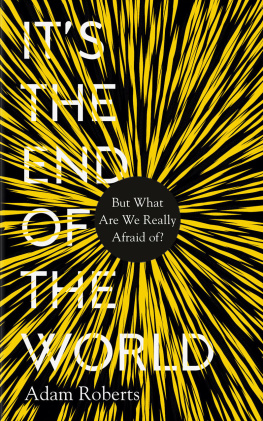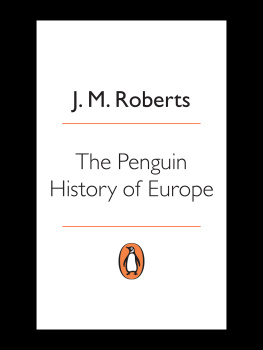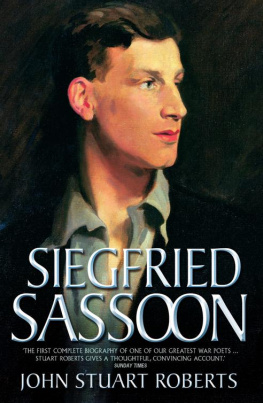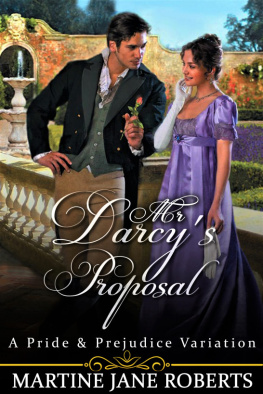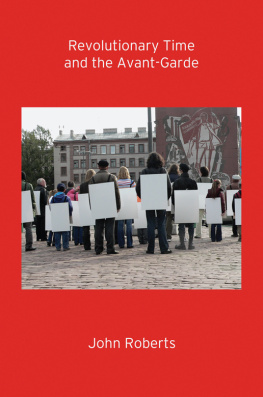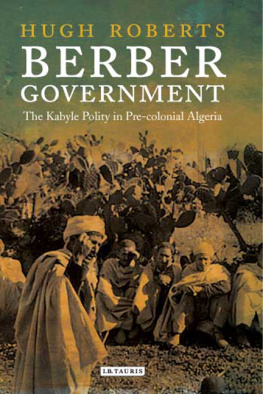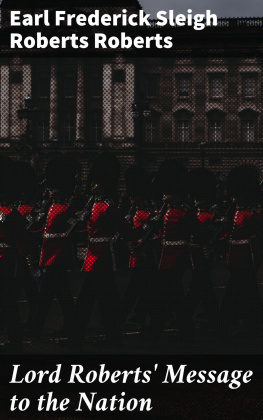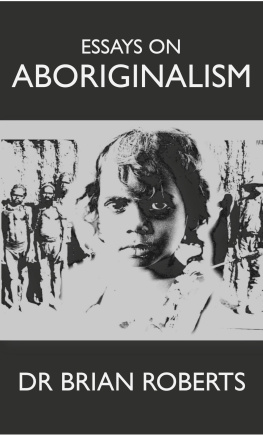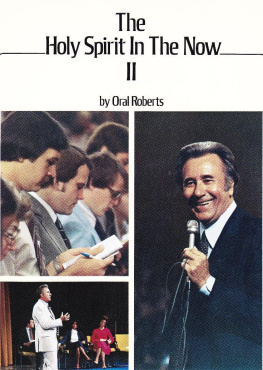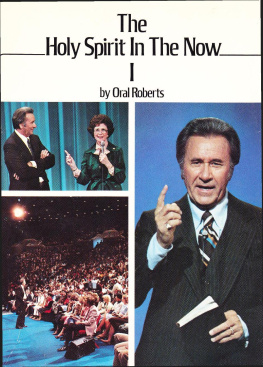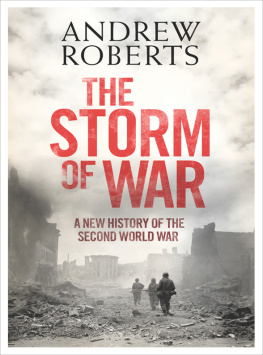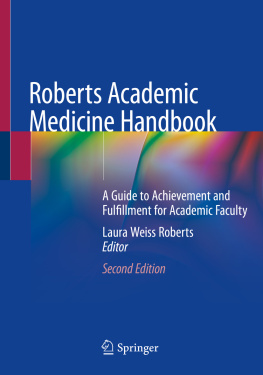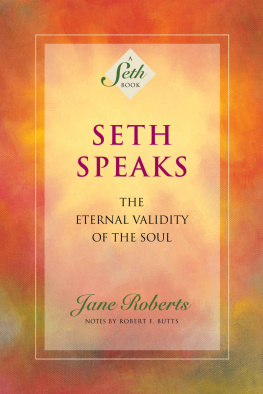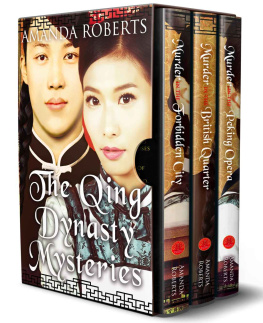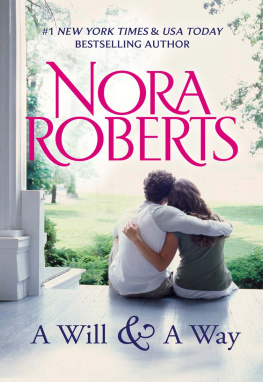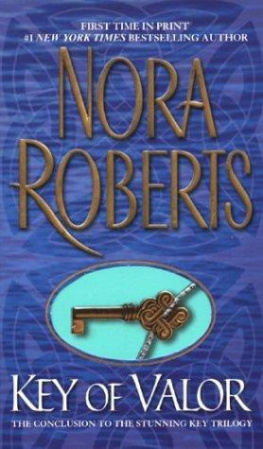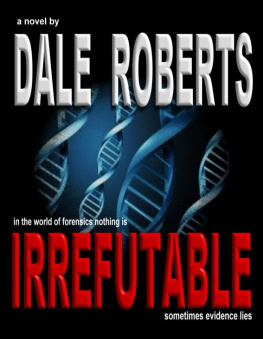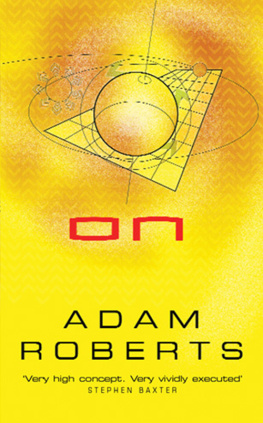Roberts - Its the End of the World : But What Are We Really Afraid Of?
Here you can read online Roberts - Its the End of the World : But What Are We Really Afraid Of? full text of the book (entire story) in english for free. Download pdf and epub, get meaning, cover and reviews about this ebook. publisher: Lightning Source Inc, genre: Romance novel. Description of the work, (preface) as well as reviews are available. Best literature library LitArk.com created for fans of good reading and offers a wide selection of genres:
Romance novel
Science fiction
Adventure
Detective
Science
History
Home and family
Prose
Art
Politics
Computer
Non-fiction
Religion
Business
Children
Humor
Choose a favorite category and find really read worthwhile books. Enjoy immersion in the world of imagination, feel the emotions of the characters or learn something new for yourself, make an fascinating discovery.
- Book:Its the End of the World : But What Are We Really Afraid Of?
- Author:
- Publisher:Lightning Source Inc
- Genre:
- Rating:5 / 5
- Favourites:Add to favourites
- Your mark:
- 100
- 1
- 2
- 3
- 4
- 5
Its the End of the World : But What Are We Really Afraid Of?: summary, description and annotation
We offer to read an annotation, description, summary or preface (depends on what the author of the book "Its the End of the World : But What Are We Really Afraid Of?" wrote himself). If you haven't found the necessary information about the book — write in the comments, we will try to find it.
Its the End of the World : But What Are We Really Afraid Of? — read online for free the complete book (whole text) full work
Below is the text of the book, divided by pages. System saving the place of the last page read, allows you to conveniently read the book "Its the End of the World : But What Are We Really Afraid Of?" online for free, without having to search again every time where you left off. Put a bookmark, and you can go to the page where you finished reading at any time.
Font size:
Interval:
Bookmark:




I ts always the end of the world. Human cultures around the globe have been obsessed with this ultimate ending for thousands of years. Religious sects insist, as they have always done, that God is moments away from rolling up the scroll of the universe and exterminating us all. And secularists are no more optimistic: according to popular culture, an alien invasion is always poised to wipe out human civilisation, or our own technology has risen up to obliterate us in the form of armies of chromium robots or sinister computer programs. An asteroid with our name on it is hurtling towards us even as we speak. Scientists warn of impending climate catastrophe, and books and films flesh out those warnings with floods, famines and new global ice ages. Plagues and new diseases are queuing up to infect us all. I started writing this book before Covid-19 shut down societies across the globe, but Im finishing it from inside that lockdown. The pandemic has been an alarming and surreal experience for all of us, but I feel it has been slightly more on-the-nose for me, having watched my speculation about world-ending plagues and collective disasters coming true all around me.
This book asks why we are so fascinated by the end of the world and starts from the fact that I myself have long been intrigued by it. As you might imagine, Ive thought quite a lot about why that might be. Writing this book has crystallised these thoughts; I now wonder if my personal engagement with apocalypse might have something to do with my profession. I write science fiction. A writer necessarily takes a professional interest in the structure of storytelling, which is to say: in beginnings, middles and ends. Knowing how a story ends tells us much about the way the story began and unfolded; it helps us to see what was important. Apocalypse is not only the ultimate end but is also always bound up with beginnings and middles, in much the same if somewhat more complex way. And while some writers concentrate on individuals and the personal aspect of living and dying, science fiction writers tend to project out from the individual to inter-planetary, even the galactic and universal.
Perhaps this starts to explain why stories about the end of the world are so ubiquitous in popular culture. From the Apocalypse of St John to Dr. Strangelove, from H. G. Wellss Time Machine to The Omega Man, from plagues of zombies and space viruses to the giant blue planet of Lars von Triers Melancholia crashing into Earth, what does it say about us? Why did the press go into hysterics in 2012 at the idea that the Mayan calendar, carved in Mesoamerican stone over 5,000 years ago, came to an end on 21 December of that year? Though this low-rent apocalyptic frenzy now looks foolish, at the time it generated much excitement as the date approached. Why?
It is not, I think, because we are morbid, pessimistic or masochistic; on one level its perfectly sensible to be interested in the end of the world. There are lots of beginnings in life, but to quote from the Matrix movie trilogy, Everything that has a beginning has an end. We are all mortal, and we will all die. One way of understanding our fascination with the end of the world is that such stories project our personal mortality onto the world. Just as we will each die, so the whole world will die at some point.
Theres a Latin phrase for it: timor mortis, the fear of dying. We think about the end of the world we speculate about it, write books and make films about it as a way of thinking about the end of our individual lives. Unique among animals, it seems, we are aware of our mortality. As you read this sentence, you are drawing air into your lungs but you also know that one day you will draw your final breath. Its an alarming thing, but theres no avoiding it. In the words of seventeenth-century poet and preacher John Donne, Death comes equally to us all, and makes us all equal when it comes. The twentieth-century writer and critic G. K. Chesterton expanded upon this point:
There are two things in which all men are manifestly and unmistakably equal. They are not equally clever or equally muscular or equally fat, as the sages of the modern reaction (with piercing insight) perceive. But this is a spiritual certainty, that all men are tragic... No special and private sorrow can be so dreadful as the fact of having to die.
Chesterton is discussing Walter Scott here not a novelist whose reputation has particularly survived into the twentieth century, although a name you have surely heard; millions of passengers pass through Edinburgh Waverley Station every year, overlooked by the Scott monument and named after his first novel. What Chesterton loved about him was his grasp of the graver basis of our common humanity, the dark dignity of man:
Can you find no way? asks Sir Arthur Wardour of the beggar when they are cut off by the tide. Ill give you a farm... Ill make you rich.... Our riches will soon be equal, says the beggar, and looks out across the advancing sea.
Chesterton is right to pick out that moment from Scotts The Antiquary, which sends a shiver up my spine. Maybe weve turned our lives to riches, or perhaps weve lived as beggars, whether materially or spiritually. The latter is perhaps more likely, and the more we feel we have wasted our life, the stronger we want to cling on to it. And the step from individual mortality to collective mortality becomes a simple extrapolation. If a person can die, so can a people. If a life can end, so can a world. And so we speculate.
There are two broad approaches in imagining the apocalypse. The first kind of story shows us the ending as a final terminus, Elvis finally leaving the building, and this time forever. In this category, we find accounts by astrophysicists of the ultimate fate of the universe, but also grim fantasies by writers like Byron and H. G. Wells that are bleakly unremitting.
The second kind of story is, surprisingly, much more common. These are works that represent the end of the world but make an exception for a chosen few; stories in which a handful of people survive the end of all things in a redoubt, or who slip away from the catastrophe through some magic escape hatch and start again. In Neal Stephensons novel Seveneves (2015), for example, something were not told what, but it might be a passing black hole rips the moon to fragments, making the annihilation of life on Earth inevitable thanks to a Hard Rain of fragments that continues for 5,000 years. It looks like a pretty comprehensive ending of the world. However, Stephenson imagines a point beyond the end of all things in order to tell his story. He describes various small groups of people fleeing Earth in spaceships or lurking at the bottom of the ocean in submarines and then, with a bravura jump-cut, takes us fifty centuries into the future, when the survivors start recolonising the ruined Earth. In this type of story, its the end of the world as we know it but, somehow, we feel fine.
These two approaches reflect two main human responses to our mortality. Some of us accept our fate, either gloomily or stoically, believing it to be our final end; but others believe that the end wont actually be the end that we will somehow survive the ending.
Font size:
Interval:
Bookmark:
Similar books «Its the End of the World : But What Are We Really Afraid Of?»
Look at similar books to Its the End of the World : But What Are We Really Afraid Of?. We have selected literature similar in name and meaning in the hope of providing readers with more options to find new, interesting, not yet read works.
Discussion, reviews of the book Its the End of the World : But What Are We Really Afraid Of? and just readers' own opinions. Leave your comments, write what you think about the work, its meaning or the main characters. Specify what exactly you liked and what you didn't like, and why you think so.

